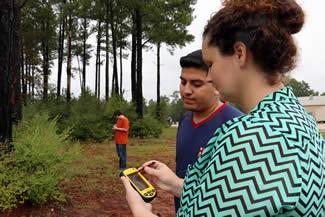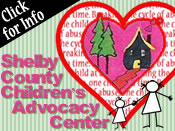 November 13, 2015 - The Texas Higher Education Coordinating Board approved Panola College’s request to offer Urban Forestry for the Spring Semester 2016. Panola College will offer a certificate in Urban Forestry, said Natalie Oswalt, Dean of Professional and Technical Programs. The two-semester certificate offered through the Department of Workforce & Continuing Education will prepare students for the fastest growing segment of the forestry profession: urban and community forestry. The program supports House Bill 5, passed by the Texas Legislature to encourage technical education.
November 13, 2015 - The Texas Higher Education Coordinating Board approved Panola College’s request to offer Urban Forestry for the Spring Semester 2016. Panola College will offer a certificate in Urban Forestry, said Natalie Oswalt, Dean of Professional and Technical Programs. The two-semester certificate offered through the Department of Workforce & Continuing Education will prepare students for the fastest growing segment of the forestry profession: urban and community forestry. The program supports House Bill 5, passed by the Texas Legislature to encourage technical education.
Panola College is working with a team of forest industry leaders to develop additional concentrations in Forest Management, and Forest Fire and Protection.
Panola College invited representatives from industry, state and federal agencies to serve on an advisory board when planning the new program. Serving on that board are Jim Crooks, U.S. Forest Service; Ken Smith, Hancock Forest Management; Chris Adams, Bird Forestry; Justin Penick, Acorn Forestry; Rodney Schroeder, American Forestry Management; Ron Hufford, Texas Forestry Association; John Boyette, Texas A&M Forest Service; John Beasley, Forest AFC; Loren Risner, Texas Forest Service, retired; James Houser, Farmers National Co.; Wanda Risner, Risner Forestry; Todd Springer, Crest National Resources; David Grassi, Crest National Resources; Phil Gates, Texas Forest Service; Stephen McInnis, Southern Power; John Lock, Campbell Global; Joe Shaw, The Davey Tree Expert Co.; Jack Swayze, The Davey Tree Expert Co.; Hans Williams, Stephen F. Austin State University, and Gordon Holley, Louisiana Tech University.
The U.S. Forest Service says Urban and Community Forestry (UCF) focuses on stewardship of urban natural resources, including parks, landscaped streets, public gardens, river and coastal greenbelts, wetlands, nature preserves, natural areas, shelter trees and other natural areas. According to the U.S. Forest Service, trees cool cities, save energy, improve air quality, strengthen local economies, reduce storm water runoff, improve social connections, and create walkable communities.
Currently, 80 percent of the nation’s population resides in urban areas. Conserving natural resources can make a positive impact on the environment, social and economic issues in these densely populated areas.
“This new certificate will provide students with the necessary credentials to find jobs in this growing field,” said Dr. Joe Shannon, Vice President of Instruction. “Graduates qualify for positions as natural resources technicians in outdoor national venues including city parks and recreation, state governmental agencies, industrial parks, corporations, master-planned communities, and timber companies.”
Coursework will teach students how to manage and produce forest resources, tree identification, timber measurement, logging and timber harvesting, forest propagation and regeneration, forest fire-fighting, equipment operation and maintenance, record-keeping, sales, purchasing, operations, and personnel supervision.
Government agency and industry support for the program is strong. Advisory board members cited an aging forestry workforce and the need for new forestry technicians, especially those with field experience and skills in fire management.
“If we receive an application that has a two-year degree in forestry, they go to the top of the list,” said John Beasley, Forest AFC.
Phil Gates, Texas Forest Service, said, “I did a job search before I came to this meeting and 150 technician jobs were shown. There are jobs out there and the students need to be mobile. Fire training is a main skill they would need.”
Davey Tree’s Joe Shaw said, “Urban forestry and herbicide training is a huge need. We have 8,000 employees and our goal for 2020 is to have 11,000 employees. As of right now, that is impossible because we would not be able to find educated applicants. I see a need for this program.”
Dr. Hans Williams, Interim Dean of the Arthur Temple College of Forestry & Agriculture at Stephen F. Austin State University, encouraged Panola to establish a program with transferable hours. “The job market in forestry is good. We are getting calls for urban foresters. We have 10 to 15 students in the Urban Forestry Program and as soon as they graduate they obtain a good job. We have a 100 percent employment rate.”
In spring 2016, students may take Plant Science, Natural Resource Communications, Introduction to Forestry, Energy Math and Computer Skills, and Wildlife Conservation and Management. For more information about enrolling in the forestry program, contact Dr. Joe Shannon at 903-693-2033 or via email at jshannon@panola.edu or Dean Natalie Oswalt at 936-591-9075 or via email at noswalt@panola.edu.








